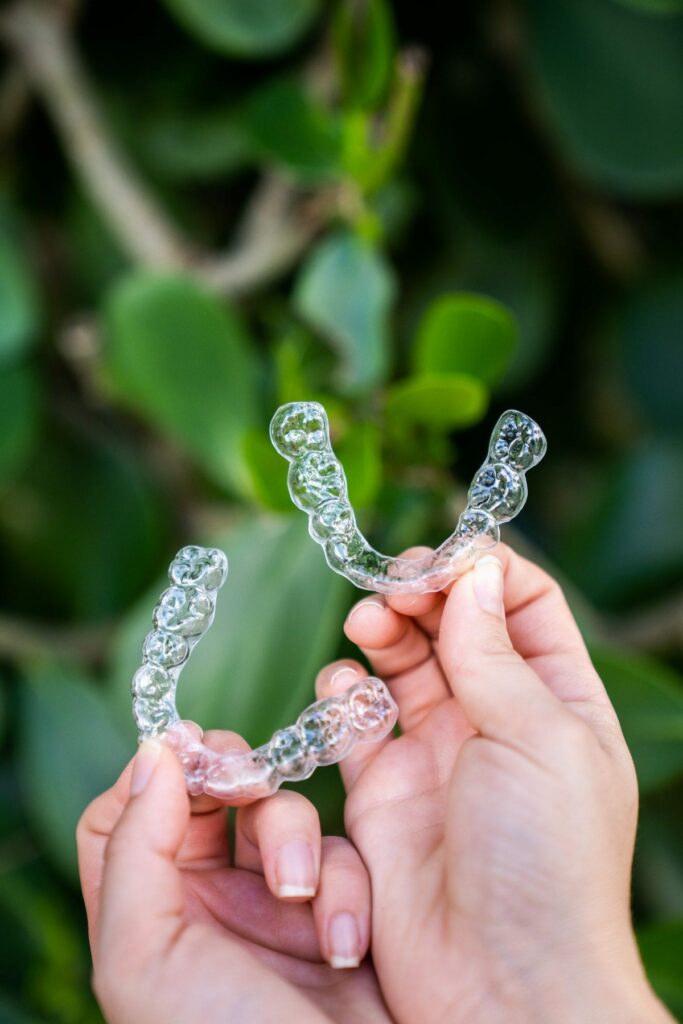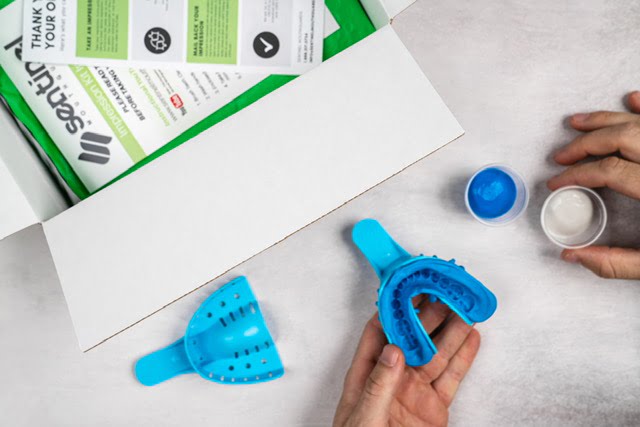What is the difference between the dental retainer and the night guard?
Article reviewed and updated for accuracy on February 21, 2023.
After removing braces, teeth are highly susceptible to movement/shifting as they just underwent some major repositioning – and even though your new, beautifully straight teeth may look like they’re here to stay, your dental anatomy is still trying to find its way.
That’s why it’s imperative to wear dental retainers as directed by your dentist. These dental retainers will keep your teeth in their new position while the teeth and surrounding gum tissue heals.
Here at Sentinel, customers often ask “Can I wear my dental retainers as a night guard as well?
The dental retainers will serve to protect your teeth from direct tooth-on-tooth grinding, but the thin material may not be durable enough to withstand the forces of your teeth and jaw for very long. Additionally, the dental retainer will lack the jaw support you may need to get facial/jaw pain relief. If you’re a heavy grinder or jaw clencher, you may find yourself replacing your dental retainers throughout the course of time that you are made to wear them.
Remember! Teeth can take one year or more to stabilize after braces.
Once you have been cleared to set the retainers aside, you may find that your bruxism disorder is still in full swing. If you are grinding or clenching, you will most likely need to continue to wear an appliance that will protect your teeth.

-
Product on sale
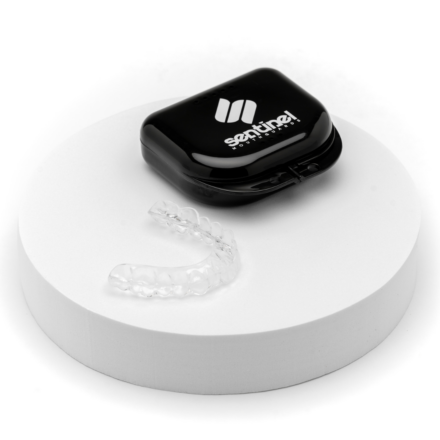 Custom Hard Night GuardOriginal price was: $169.00.$149.00Current price is: $149.00.
Custom Hard Night GuardOriginal price was: $169.00.$149.00Current price is: $149.00. -
Product on sale
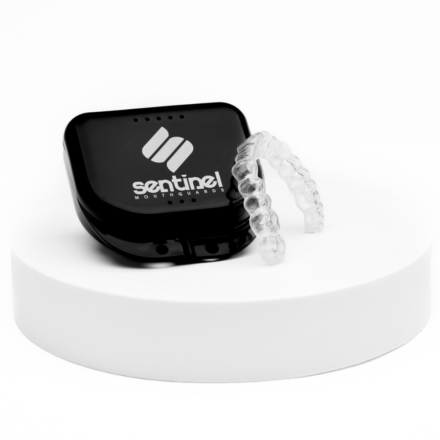 Custom Dual Laminated Night GuardOriginal price was: $169.00.$149.00Current price is: $149.00.
Custom Dual Laminated Night GuardOriginal price was: $169.00.$149.00Current price is: $149.00. -
Product on sale
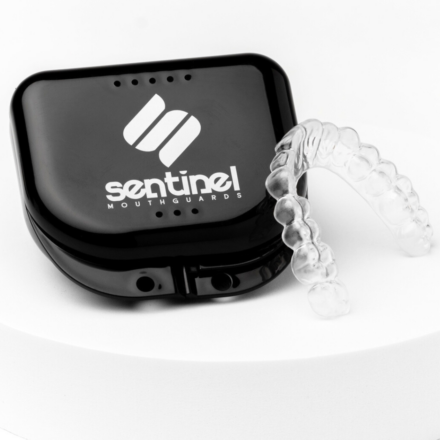 Custom Soft Night GuardOriginal price was: $149.00.$129.00Current price is: $129.00.
Custom Soft Night GuardOriginal price was: $149.00.$129.00Current price is: $129.00. -
Product on sale
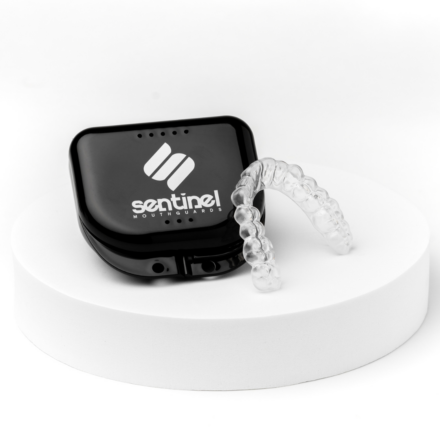 Durability Mouth Guard for Heavy Teeth GrindingOriginal price was: $215.00.$189.00Current price is: $189.00.
Durability Mouth Guard for Heavy Teeth GrindingOriginal price was: $215.00.$189.00Current price is: $189.00. -
Product on sale
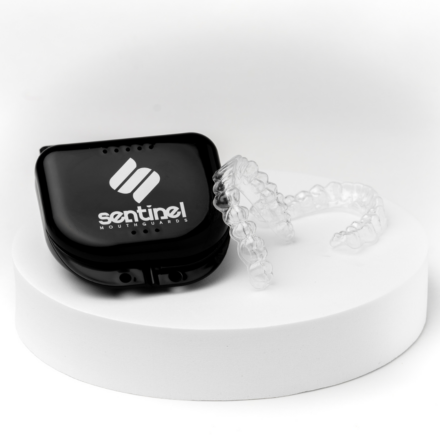 Clear Dental Retainers – Perfect Replacement Aligners$129.00 – $179.00
Clear Dental Retainers – Perfect Replacement Aligners$129.00 – $179.00 -
Product on sale
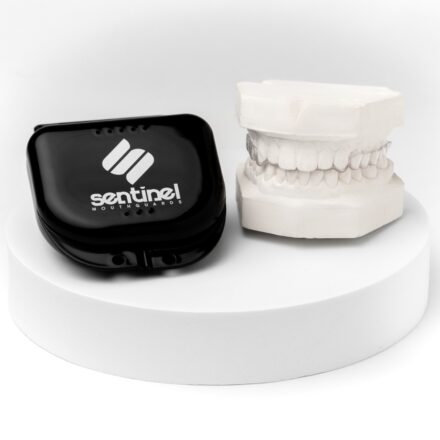 No-Show Day Mouth GuardOriginal price was: $149.00.$129.00Current price is: $129.00.
No-Show Day Mouth GuardOriginal price was: $149.00.$129.00Current price is: $129.00. -
Product on sale
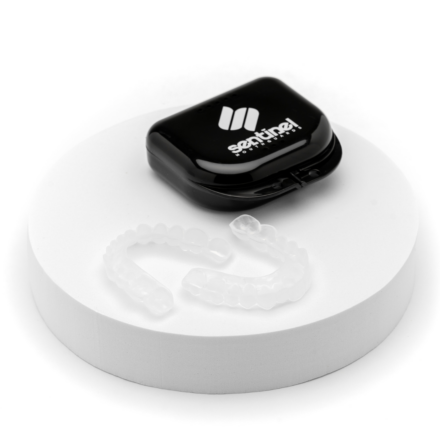 Tongue and Cheek Biting Relief Mouth GuardsOriginal price was: $189.00.$169.00Current price is: $169.00.
Tongue and Cheek Biting Relief Mouth GuardsOriginal price was: $189.00.$169.00Current price is: $169.00. -
Product on sale
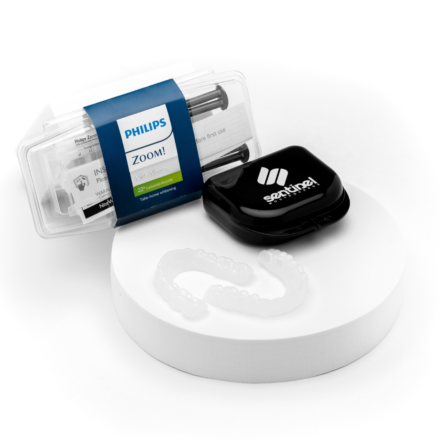 Teeth Whitening – Professional-Grade Results from the Comfort of HomeOriginal price was: $199.00.$179.00Current price is: $179.00.
Teeth Whitening – Professional-Grade Results from the Comfort of HomeOriginal price was: $199.00.$179.00Current price is: $179.00. -
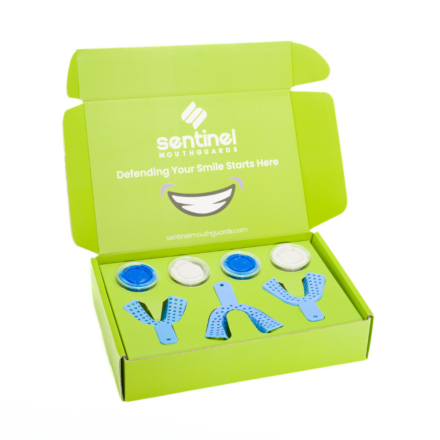 Extra Dental Impression Kit$15.00
Extra Dental Impression Kit$15.00
A night guard is not typically worn on both teeth arches. You will need to first decide whether you should wear an upper, or lower guard.
“I only had invisalign (braces) on my upper teeth so I only have to wear a dental retainer on my upper teeth. Will this still protect my teeth from the grinding problem?”
You are still breaking up that direct tooth on tooth contact, so you are giving your teeth some protection. However, the durability of the thin dental retainer is not great and it will wear quickly. Also, the need for jaw support is still not being resolved through the use of the lone dental retainer.
The best solution would be to wear a dental retainer on the upper and lower teeth because:
- Your teeth may shift naturally, and if you’re only keeping the upper teeth in their current, your bite may soon be out of whack as your upper teeth are staying the same, but your lower teeth are shifting
- If you’re wearing thin dental retainers on both the upper and lower teeth, these appliances can sometimes be worn effectively in lieu of a dental night guard.
If you have finished wearing braces, keep this in mind: Your dentist worked very hard during your orthodontic treatment to make sure that not only your teeth reach optimal results, but that your bite is correct. It’s important to wear upper and lower retainers to keep the bite correctly positioned.
Can I use my night guard as a dental retainer?
A hard night guard will act to keep the teeth in position. It must be a completely hard, non-flexible night guard device in order to keep the teeth from shifting.
A soft night guard will be of no use in keeping the teeth in a desired position. However, it would be too thick to wear on both the upper and lower teeth (refer back to the first question).
What does a night guard do that a dental retainer does not?
Dental retainer vs. night guard
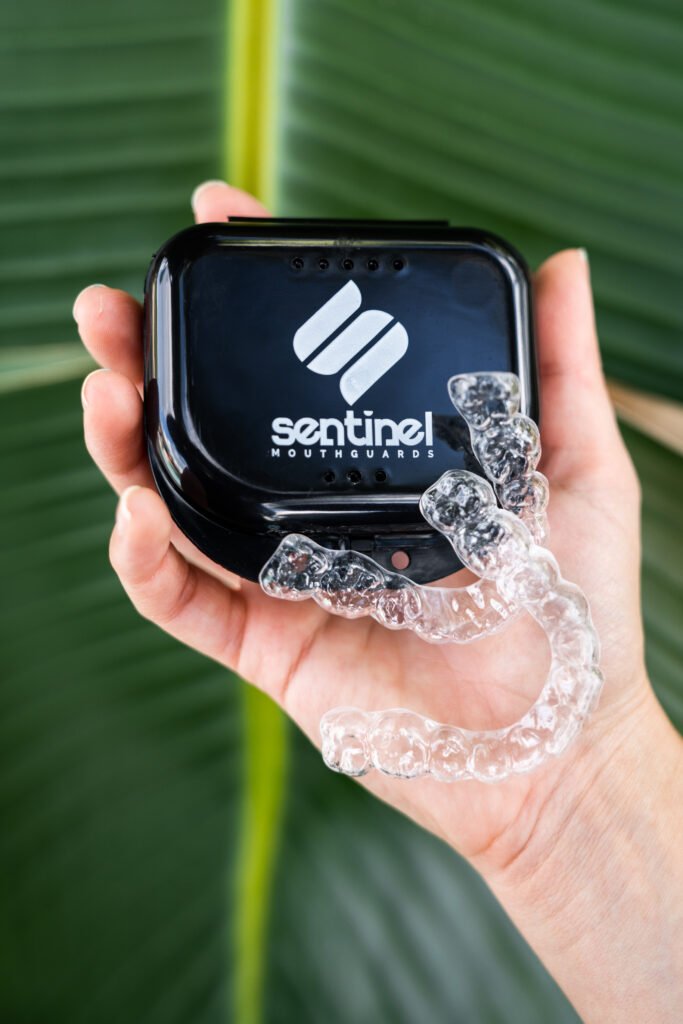
A 2mm or thicker night guard will offer the durability you may need to combat against heavy teeth grinding or clenching. Additionally, it will offer the jaw support needed to have relief from your aching jaw muscles.
Night guards come in a variety of material types, thicknesses and methods of fabrication. The Sentinel Night Guard is available as a soft, hard or dual laminate (hybrid) type. The hard material will act as a teeth stabilizer and may be a wise choice if your teeth are prone to shifting.
Is there anything I can do to lessen the severity of my teeth grinding?
To date, there is no known cure for bruxism. Sometimes people will grind or clench severely and then stop it all together only to pick it up again several months or years down the road. Stress seems to play a big factor in teeth grinding. There are some things that can be effective in easing the intensity of the action. These include lessening or eliminating caffeine/alcohol/drug intake, and lowering stress levels. Sleep positions can also be a factor.
NATHAN J. PETTIT, DMD suggests sleeping on your back. It is going to be the best position if you suffer from TMD or orofacial pain. Lying on your back has a number of benefits – view his full article.
Other suggested tips for stopping teeth grinding.
Have questions about ordering your custom night guard or dental retainer set online?
Most people have a few questions before ordering their custom night guard online. Here we attempt to answer the most common questions asked at Sentinel Mouthguards®. The good news is, we make it easy and there are actually a lot of benefits to ordering directly from a dental lab that you don’t get when you go through a dental office (including saving hundreds of dollars).
Q: I’m nervous about taking my own dental impression. What if I don’t get it right the first time?
A: Taking your own dental impression is easy! If you don’t do it right the first time, no worries. We will send you out a redo kit for free.
Q: Am I really ordering the type of night guard or dental retainer(s) my dentist wants to make for me?
A: Absolutely. Night guard or retainer cost spans from $300-$1200 in a dental office. Have you ever wondered why the price range varies so widely from office to office? We’ll tell you! It’s because dentists charge what they want. Now in their defense, they do typically have a lot more overhead than a direct dental lab. But why should you pay so much for something that’s noninvasive and not terribly complicated to make?
*Please note that some dental night guards require special construction and you must go through a trained dentist. For instance, if your dentist is treating TMJ or misalignment, he/she may recommend a special type of night guard that could include building up certain areas of the guard, ramps or metal clasps to move your jaw or correct your bite.
In these cases, you should not order online. Check with your dentist to find out which type of night guard he/she recommends. If you’re in need of a basic, premium custom made night guard for your teeth grinding and/or jaw clenching you should be well to order a night guard through our online system.
Q: What if my night guard or retainer(s) doesn’t fit correctly?
A: A great fitting night guard starts with taking a great dental impression. Even so, sometimes you may still need an adjustment to get that perfect fit. If you do need an adjustment (ex: my night guard feels really tight on one of my teeth), simply contact us to describe any issue you’re having & we will email you a prepaid shipping label. Print the return label and use to it to mail your guard back in to us. Upon receipt of your guard, we will promptly make any adjustments and send it back to you within 1 business day!
Q: I see I can choose the thickness of my night guard. This is great but I don’t know which thickness to choose. How do I choose the right one?
A: Short answer: The thicker your night guard the more durable it becomes, but also (generally speaking) can be less comfortable as the thickness increases.
Thin for light teeth grinding & clenching– This is very thin and recommended for daytime grinders or clenchers. These types of bruxers typically do not do as much damage to the teeth during daylight hours. The 1mm can also be worn at night but could wear down more quickly (depending on an individuals’ bruxing habits).
Thicker for moderate to heavy teeth grinding– This is the most popular thickness for nighttime use. While thin and comfortable, it still offers the durability a light to moderate bruxer needs.
Thickest for heavy teeth grinding/clenching– For heavy teeth grinding or jaw clenching, a 3mm night guard should suffice. Please take a moment to read this article for more help on choosing your dental night guard thickness.
2mm Sentinel Soft Dental Night Guard
Q: How do I know whether to choose an upper or lower night guard?
A: Most of the time, choosing an upper or lower teeth night guard will come down to personal preference. Whether the night guard is on your upper or lower teeth, it will serve the same purpose – to protect both teeth arches from coming in direct contact with each other.
Try asking your dentist whether they think an upper or lower night guard would work best for you. Also, use common sense. If you know you have some upcoming dental work on one of your teeth arches that will change your dental anatomy, don’t take a dental impression of that arch and have a custom fit night guard made for it just yet. Choose the other arch or wait until your dental work is compete before taking your dental impression.
Dentists answers vary greatly when asked their opinion on upper or lower night guards.
You do not need to stretch your budget to pay for a night guard from the dental office. In fact, there are quite a few perks involved when ordering though Sentinel Mouthguards®.
1.) We offer a 100% satisfaction guarantee or your money back (90 day money back guarantee)
2.) We will work with you to your complete satisfaction. We will make sure you get it right. Once you receive your night guard, if you have ANY problems with the fit, we will take the necessary steps to make sure you end up with a great fitting night guard.
3.) We will replace your worn out night guard for up to 1 year from your purchase date (on dual laminated and hard acrylic night guards) and up to 6 months for the soft night guard. Try to find a dentist who will do that!
4.) You will save hundreds ordering directly from the lab
5.) Free shipping, including a convenient prepaid mailer to mail back your teeth impression
6.) We provide an tutorial video for you to watch as well as simple written instructions. All you have to do is mix your putty in a timely manner, roll it up, place it into a plastic tray & submerge your teeth into it for 3 minutes.

That’s it!
Check out the Sentinel Mouthguards® help center for more info.
We appreciate you taking the time to read our latest article on dental retainers vs. night guards.
Please feel free to comment and share!

